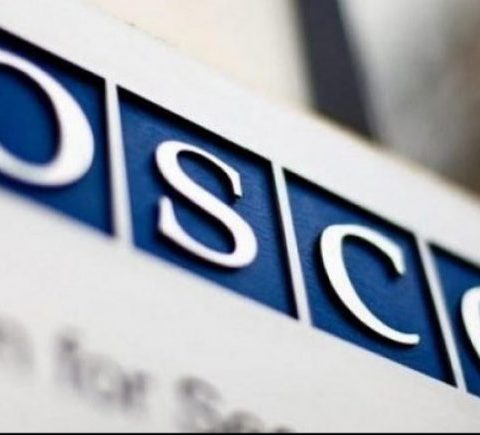
Following the recent writings in Bosnia and Herzegovina and Croatia over the existence of an informal document that is circulating in closed negotiations within the EU, allegedly proposing to change the borders in the Balkans, the US and the EU reacted by saying that they support the territorial integrity of Bosnia, writes VOA. The US State Department told to the Serbian language version of the Voice of America that the US “supports the territorial integrity of Bosnia and Herzegovina, that has to be followed as it was set out in the 1995 Dayton Accords, which ended the war in that country.” In the same line was also the head of the diplomatic mission of the European Union Delegation to Bosnia, which issued a joint statement with the EUFOR Commander, saying that “the EU is unequivocally committed to sovereignty, unity and integrity of Bosnia and Herzegovina.”
Croatian and Bosnian media reported that the informal document, drafted by Slovenian Prime Minister Janez Janša, had been sent to the European Council President Charles Michel, “proposing a redefinition of the borders in the Western Balkans as a solution to the region’s open problems,” writes VOA. The Slovenian portal “Necenzurirano.si” published a document claiming to be a copy of the document, in which it is proposed the redefining of the borders of Kosovo and Serbia, the unification of Kosovo with Albania, the unification of the Albanian-majority parts of Montenegro and Northern Macedonia with Albania, the possibility of secession of the Republika Srpska from Bosnia and Herzegovina and the unification of parts of Western Balkans with Croatia.
Meanwhile, The European Union has said several times that they have no knowledge of such a document. Slovenian Prime Minister Janša, whose country will chair the European Union in the second half of this year, wrote that the claims for such a document are actions aimed at “harming Slovenia in the EU,” writes VOA. According to Janša, “Slovenia is seriously looking in finding solutions for the development of the region and the European future of the Western Balkans countries, and it is precisely such writings that are trying to prevent this goal.”
The leader of the Social Democrats of Slovenia, Tanja Fajon, who has served as a member of the European Parliament, appeared at an extraordinary press conference on Thursday, asking the Prime Minister and the Foreign Ministry of Slovenia to clarify their position regarding the future of the region. “Responsible Slovenian foreign policy must declare and support the clear European perspective of the Western Balkan countries, for which I call on Janša to make his position clear to the Western Balkans as soon as possible, especially regarding Bosnia and Herzegovina,” said Fajon, adding that “we have an extraordinary opportunity to restore trust between the EU, Slovenia and the region during our presidency.”
In Bosnia there was a lot of reaction from Muslims and Croats to any allegations of border changing, which continues to remain a very sensitive issue in the Western Balkans region that is still struggling to recover from the aftermath of the bloody wars of the late last century, writes VOA. At the other hand, in Kosovo there was no reaction regarding this issue. In the summer of 2018, the discussions about the exchanging territories with Serbia were raised, and former Kosovo President Hashim Thaçi and Serbian President Aleksandar Vučić, sought international support for any agreement that could be reached during the EU-mediated talks, even if that implied a change of boundaries.
The Serbian president during that time had declared as his policy “the demarcation of the border between Serbs and Albanians,” which meant the division of Kosovo with the north that would join Serbia, while the president of Kosovo, Hashim Thaçi, was committed in “correcting borders” which would mean the unification of the Preshevë Valley with Kosovo. The ideas back then provoked strong reactions in Kosovo, but also in Serbia, as well as the opposition of some European Union countries, especially Germany. As VOA writes, “independent observers in Kosovo said that the publication of the alleged Slovenian document could be a new test for public opinion in the Western Balkans, whose aspirations for European integration are still compounded by inherited problems.”










